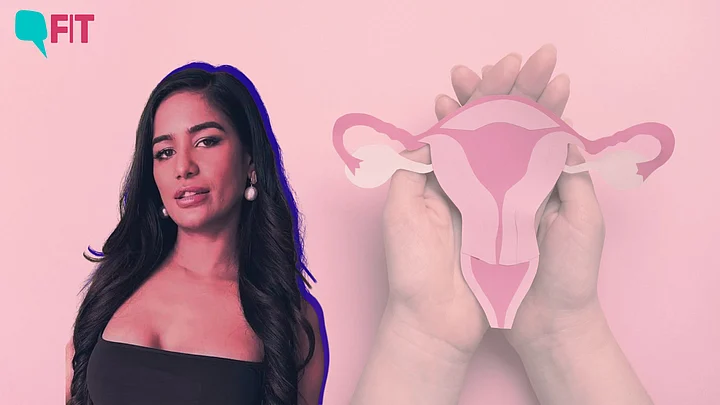Recently, the actress Poonam Pandey’s Instagram profile announced her death due to cervical cancer.
The news which rapidly went viral across social media and mainstream platforms made millions of people across the country sit up. For a moment.
Until Saturday morning, when she released a clip that revealed that she had faked her death announcement to raise awareness about cervical cancer.
Shock Messaging Isn’t New to Public Health Communication
Shock messaging has been used to raise awareness in the past on several issues including road safety, HIV/AIDS, contraception use, tobacco and COVID-19, and now cervical cancer.
Fear appeals are used to confront people by highlighting the negative consequences of risky behaviour with the aim of changing undesirable behaviour.
However, in addition to questions about the ethics and efficacy of this kind of fear-based messaging it also has negative consequences on those who are most vulnerable to misinformation.
Fear- based messaging targets those who are already struggling with limited agency and choices – in this case, very often, the women and girls to whom cervical cancer HPV vaccine information should be addressed to in the first place.
This makes fear-based messaging, such as the social media posts by Poonam Pandey, a harmful messaging method for public health awareness.
Fear Can Perpetuate Suspicion and Hesitancy
As public health creative communicators working on reducing information vacuums and asymmetry as well as misinformation, Purpose has developed a response model to take action and mitigate risks of communication in different sectors.
The model suggests several steps, including,
Inoculating audiences: Equipping young people with credible and verified information, and building allies to respond through collaborations with, media, content creators, and doctor networks.
Let’s take the case of the HPV vaccine which has been in the news recently due to the Government’s commitment to fast-tracking the vaccine in the public health system for all girls aged 9-14.
In India, both hesitancy and suspicion around vaccine confidence, alongside gender norms that deprioritize vaccinations for adolescent girls and women, be it for contraception, immunization, or more recently cancer, means the HPV vaccine has been met with significant hesitation.
In many cases, even where vaccine services are available, there exists a lack of basic standards of quality of care, dignity, and respect for women.
'It's Not Just a Health Story, but Rather a Gendered One'
Women – when they have non-judgemental access to credible and trustworthy information, quality and dignified health services and lifesaving medicines and vaccinations – will themselves make healthy and safe choices.
Unfortunately in India, historically, the story of women’s health and specifically, reproductive health has been characterised by a lack of choice and agency.
In a country where the stigma of talking about STIs and STDs is already so high, coupled with the shame associated with cancer, doctors lack the confidence and training to address the issue effectively with parents, guardians, couples and young girls.
In many instances, physicians and counsellors hesitate to talk about sexual activity, let alone recommend access to HPV vaccinations.
Research by RTI International and the Center for Social and Behavior Change, Ashoka University points out that while physicians are generally aware of the burden of cervical cancer and its prevention by HPV vaccination, they face several barriers to recommending the HPV vaccine routinely and strongly.
These include the lack of national-level guidance on the age eligibility and dosage, out-of-pocket cost and vaccine availability.
Gender inequity in health-seeking behaviour means that unmarried girls are often dissuaded from accessing anything more than the most basic healthcare services.
On the other hand, married women have little agency and are dependent on husbands or mothers-in-law to make decisions about visiting a doctor.
Yes, We Need to Talk About Cervical Cancer
Poonam Pandey is right about one thing – cervical cancer is preventable and curable.
And yet, current estimates indicate that every year over 1.2 lakh women are diagnosed with cervical cancer and almost 80000 die from the disease.2 As per the NFHS-5 data, the percentages of women across India who have ever undergone cervical and breast screening were 1.9 percent and 0.9 percent respectively.
Given abysmally low rates of screening and non-diagnosis, in reality these figures are much higher. It is the 2nd most frequent cancer among women in India.
In an environment of inadequate information, misinformation, and misconception, shock messaging can only create further challenges and barriers to uptake of lifesaving medicines and vaccines.
The answer to addressing this enormous gap is not shock and horror, but rather consistent and concerted communication that focuses on credible messages that are locally contextual and targeted at women and girls in the languages and cultural idioms they trust.
There is an opportunity here, not to communicate through fear, but rather to build a cohort of trusted messengers and hyperlocal voices who provide safe, non-judgemental, and credible lifesaving information to girls and their families.
(Mandira Kalra Kalaan & Gurpriya Singh are Senior Director and Manager, respectively, at Purpose, a social impact creative communication agency. )
